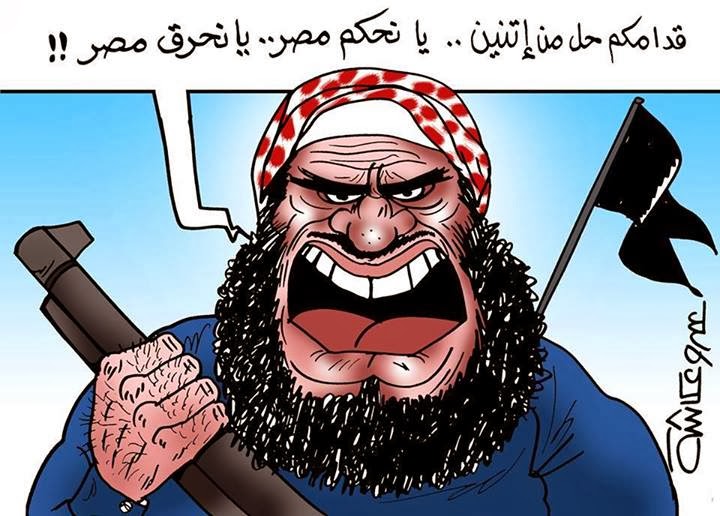Cairo – There have been several conspiracies geared toward redrawing the Middle East, under the veneer of the Creative Chaos Theory. Qatar has played a pivotal role to exploit the uprisings of the so-called Arab Spring in order to implement such plots and conspiracies.
During the Egyptian January 25 Revolution, the first spark was ignited on January 28, 2011, when the then Muslim Brotherhood (MB) member Mohamed Morsi phoned the Qatari state-owned Al-Jazeera channel after breaking out from jail. Morsi told the channel that people freed 34 members of the MB group. This phone call provided accurate information about the whereabouts of Morsi, who assumed the presidency of Egypt later. The phone call was deciphered and interpreted as a message sent through Doha from Morsi to the group’s members and supporters abroad.
There was another scene of considerable importance during the Egyptian Revolution of 2011, when former president Hosni Mubarak stepped down on February 11, 2011. At that point, Cairo’s Tahrir Square turned into a global iconic symbol of this revolution, but at the same time MB-linked Egyptian Islamic scholar Yusuf al-Qaradawi was present at the square. He came all the way from Qatar to Egypt after several years of travel ban and self-exile in Qatar.
The presence of al-Qaradawi at that time caused misgivings about a “piracy” of the Egyptian popular uprising under the cloak of MB group with Qatar’s support. Such misgivings came true after the MB group rose to power after Morsi won the Egyptian presidential election, although the group’s ultimate ambition was to win as many parliamentary seats as they could. The celebrations of the MB in Egypt resonated widely through Doha via Qatar-funded media outlets to garner support the new Brotherhood-dominated regime in Egypt.
After the revolution, MB leading figure Khairat El-Shater, met with Mohammed bin Abdulrahman bin Jassim Al Thani, the then secretary of the personal representative of Qatar’s Emir, prior to the Egyptian presidential election. El-Shater asked the Qatari official to inform the United States of America that the group would remain committed to the Camp David Accords and all international relations with western countries. In return, El-Shater asked for having financial support and Doha had already provided the group with sufficient funding through Qatar Islamic Bank (QIB). The bank was wiring money to an account of “Academy of Change” run by al-Qaradawi’s son-in-law Hisham Morsy.
After being popped up as president on December 30, 2012, ousted President Morsi started utilizing Egypt’s economy to serve the underhand interests of Qatar, according to case No. 4210 filed to the Public Prosecutor and supported with classified documents. As per this case, Morsi and former Prime Minister Hesham Qandil were accused of deliberately doing “ations inimical to Egypt’s national interests through striking a deal with Qatar under the instructions of the MB Guidance Bureau.” Under such notorious deals and agreements, Qatar would make investments in the area of Suez Canal and other regions in Egypt, in addition to establishing factories and investment projects in the Egyptian cities of Hurghada and Sharm El-Sheikh. Moreover, Doha signed an agreement to establish a Qatari industrial zone, power plant and a complete logistic village in Port Said. All these deals and agreements aimed to enable Qatar to dominate and control the Egypt’s economy and gains, which is legally forbidden.
Egyptian Journalist and Member of Parliament, Dr. Abdel Rehim Ali is an expert on Islamist Movements and political Islam. This essay is adapted from his upcoming book “Qatar: The Destabilizer of the Middle East: The Full Story of Grand Conspiracy,” which will be published later this month.








































admin in: How the Muslim Brotherhood betrayed Saudi Arabia?
Great article with insight ...
https://www.viagrapascherfr.com/achat-sildenafil-pfizer-tarif/ in: Cross-region cooperation between anti-terrorism agencies needed
Hello there, just became aware of your blog through Google, and found ...